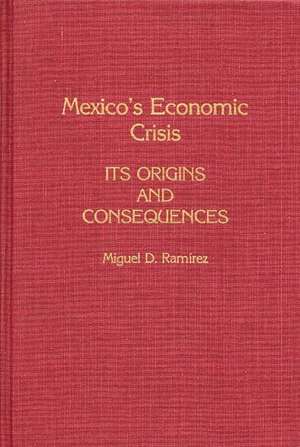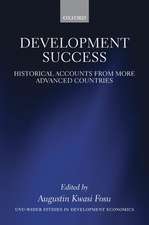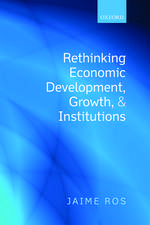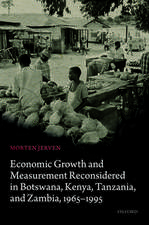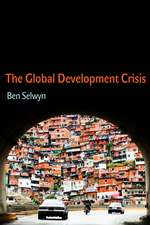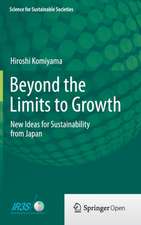Mexico's Economic Crisis: Its Origins and Consequences: Bibliographies and Indexes in
Autor MIGUEL RAMIREZen Limba Engleză Hardback – 9 mar 1989
In his penetrating analysis of Mexico's current economic, political, and social situation, Ramirez focuses on the major structural problems that underlie the nation's profound economic difficulties and the challenges they pose to its people. Writing for both economists and political scientists, Ramirez offers a framework of analysis for a better understanding of Mexico's economic crisis -- one based on an in-depth examination of both its historical origins and its present ramifications. The discussion is supported by comprehensive coverage of the relevant economic data, making this one of the most thorough treatments of the subject available in print.
Following an introductory chapter that provides essential background information, Ramirez addresses the historical and institutional background of the current situation. His study is unusually broad-based in scope, encompassing such issues as the social costs of modernization and the legacy of revolution during the first part of this century, Cardenas and the revolutionary process, economic growth via import-substitution policies, the exhaustion of the Mexican growth model during the 1970s and 1980s, the IMF austerity program. The final chapters present cogently argued policy recommendations -- including alternatives to the austerity measures imposed by international lending organizations. Ramirez's conclusions regarding the causes of Mexico's economic decline and his predictions for the country's economic future make an important contribution to the debate over Mexico's economic survival.
Preț: 343.71 lei
Preț vechi: 555.16 lei
-38% Nou
65.77€ • 68.67$ • 54.43£
Carte tipărită la comandă
Livrare economică 05-19 aprilie
Specificații
ISBN-10: 0275928675
Pagini: 164
Dimensiuni: 140 x 216 x 11 mm
Greutate: 0.34 kg
Editura: Praeger
Colecția Praeger
Seria Bibliographies and Indexes in
Descriere
Following an introductory chapter that provides essential background information, Ramirez addresses the historical and institutional background of the current situation. His study is unusually broad-based in scope, encompassing such issues as the social costs of modernization and the legacy of revolution during the first part of this century, Cardenas and the revolutionary process, economic growth via import-substitution policies, the exhaustion of the Mexican growth model during the 1970s and 1980s, the IMF austerity program. The final chapters present cogently argued policy recommendations -- including alternatives to the austerity measures imposed by international lending organizations. Ramirez's conclusions regarding the causes of Mexico's economic decline and his predictions for the country's economic future make an important contribution to the debate over Mexico's economic survival.
